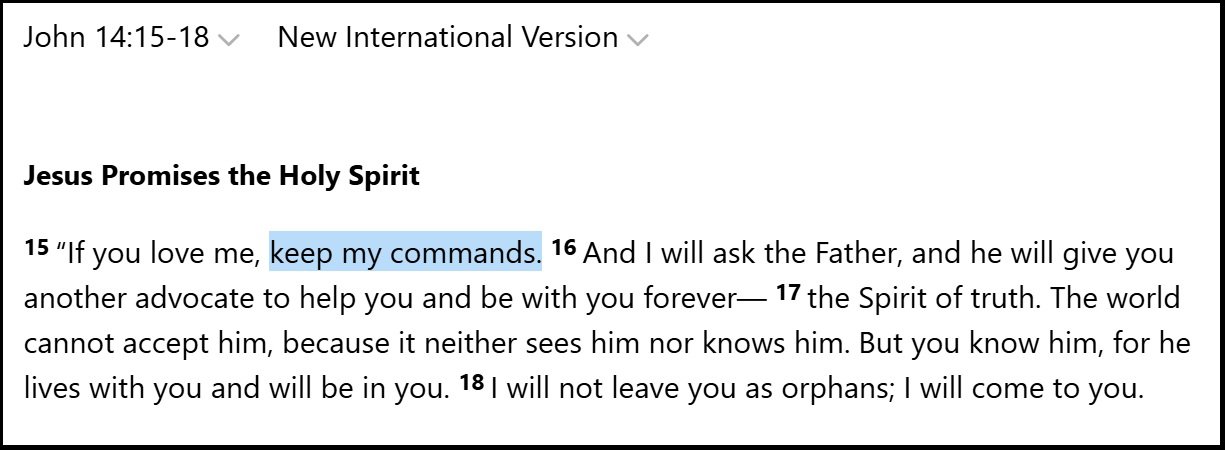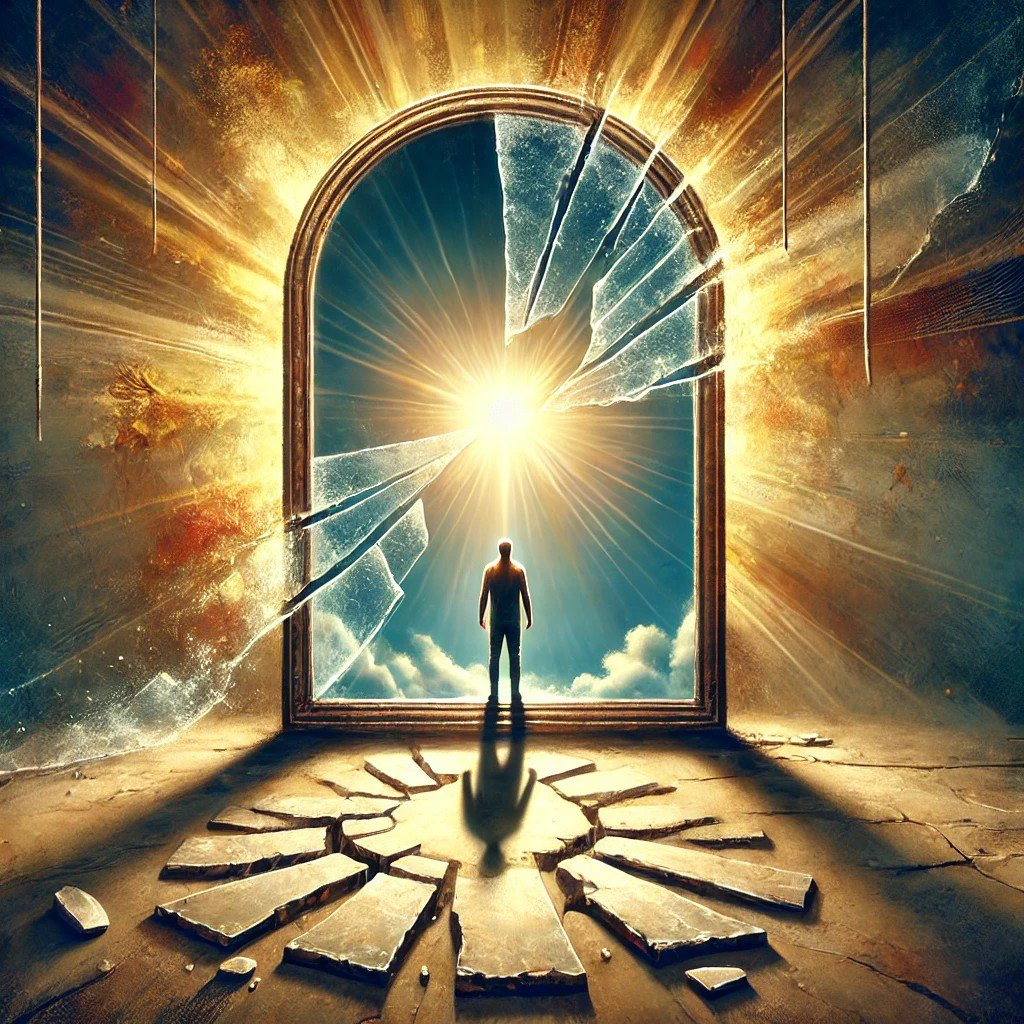

Seeing clearly
One of the drawers in my garage contains those few items needed to clean car windows.
I’ve got the Glass Cleaner spray can, the RainX (no, this article is not sponsored!), and another cleaner that specializes in dissolving dead insects.
Then there are the microfiber cloths, two squeegees (neither of which works very well on our curved windshields), a brush-like scrubby with a handle that does really good work on the inside of the windshield…
All of which, ideally, can be used to pursue the desired result: clean windows and happy drivers.
Unfortunately, I rarely get a perfect result.
It’s probably me.
I’m basically “all thumbs” when it comes to anything other than being a pastor, so I’m not going to blame the RainX, the microfiber towels, or the other chemicals.
I suspect every single one of those items is being used by others to great effect.
But here’s the mystery: Every time I get finished cleaning the windows in our automobiles, they look perfect…
Until I am out driving in the sunshine, and I start to see the streaks, the missed corners and edges, the last stubborn vestiges of some poor beetle which met its demise on my windshield at 55mph but which refuses to be forgotten despite the toxic chemical soup I sprayed on in hopes of removing it.
I CANNOT GET MY WINDOWS CLEAN!
What looked fine in the dim light of my garage suddenly, under the full light of the sun, reveals streaks, smudges and haze that I hadn’t seen before.
The Law - God’s righteous description of how our lives ought to be lived - works this same way.
At first glance, the Ten Commandments seem like a list of rules for good behavior, guidelines for moral living. But the moment we see them in the full light of Christ, we realize they don’t just reveal a better way to live—they reveal the deep corruption of our hearts.
Lutherans have always understood that the Law is not just about behavior modification.
It’s a mirror, and a brutally honest one at that.
Before it can show us how to improve, it reveals just how broken we truly are.
And that, as strange as it sounds, is a gift.
What looked fine in the dim light of my garage suddenly, under the full light of the sun,
reveals streaks, smudges and haze that I hadn’t seen before.
the three uses of the law
Lutherans speak of the Law having three "uses."
- Curb: It keeps society in check, preventing outright chaos.
- Mirror: It reveals our sin and leaves us with no excuse.
- Guide: It shows Christians how to live in response to the Gospel.
Of these, the second use is the most uncomfortable, because it takes away our illusions.
We want to believe we’re doing okay.
Maybe not perfect, but certainly better than most.
Sure, we bend the truth now and then, but at least we’re not liars.
We might harbor bitterness, but we’d never actually murder anyone.
Jesus has a different take: "You have heard that it was said to those of old, ‘You shall not murder’… But I say to you that everyone who is angry with his brother will be liable to judgment" (Matt. 5:21-22).
Well… that escalated quickly.
The Sermon on the Mount is Jesus holding up the mirror.
Not just to the surface, but to the depths of our hearts. What looks “clean” under a brief precursory inspection ends up looking quite different under the bright lights of the 10 Commandments.
The Law is not about what we can manage on the outside; it’s about what festers within.
And when we see ourselves as we truly are—when we stop self-justifying and let the weight of our sin settle—there’s only one conclusion left: "None is righteous, no, not one… by works of the law no human being will be justified in His sight, since through the law comes knowledge of sin" (Rom. 3:10, 20).
That’s what Lent is about. Seeing ourselves clearly, so that we can stop pretending and start repenting.
Just as with Ash Wednesday, this aspect of Lent is greater than just Lent’s 40 days - this is the Christian life in whole.
That’s what Lent is about: seeing ourselves clearly,
so that we can stop pretending and start repenting.
when the mirror crushes you
Martin Luther called the Law a schoolmaster—a teacher that leads us straight to Christ.
Why? Because once we see how utterly incapable we are of keeping God’s standard, the only option left is to throw ourselves on His mercy.
The Law humbles, but the Gospel lifts. The Commandments crush, but Christ restores.
The God who declares, "You shall," and "You shall not," is the same God who cries, "It is finished."
That’s why Lent doesn’t leave us wallowing. It moves us forward.
While it is natural for us to want to avoid the “mirror” when it keeps showing us things we don’t want to see, our faith in Jesus emboldens us to look at ourselves as God sees us.
For that we need His Law.
curb that sin
The curb function of the Law is the most obvious—it establishes order, restraining sin to a degree and allowing civilization to function.
Even those who don’t acknowledge God still live under His Law in this way.
Civil laws against theft, murder, and perjury are reflections of the moral order God has built into creation.
But while the curb keeps people from outward lawlessness, it doesn’t change the heart.
It’s one thing not to steal because you fear punishment, and another thing not to steal because your heart has been made new by grace.
If the Law of God did not function like a “curb”, human culture would never survive.
Without a universally logical standard such as, “murder is wrong”, who’s to say it’s wrong to murder you?
god's gps
The guide function of the Law is for Christians—those who have been redeemed by Christ and now seek to live in a way that reflects His love.
Though the Law no longer condemns us in Christ, it still directs us.
The Ten Commandments are not just a mirror of our failure; they are also a blueprint for what it means to love God and love our neighbor.
This is why Lutherans teach that the Law still has a place in the Christian life—not as a ladder to salvation, but as a lamp to our feet.
In translating the commandments from their original Hebrew, we sometimes find English words that do not adequately convey this third use.
Words like, “thou shalt not” or, “you shall not” convey the “curb” and “mirror”, but they don’t suggest “guide” as well as the Hebrew original.
I have suggested that we read the commandments like this: “You’ll not steal” instead of “You shall not steal”.
I believe this still conveys the curb and mirror uses of the law - “hey you, that thing you’re stealing? Yeah, you’ll not be doing that any more! Knock it off!”
I also believe this conveys the guide aspect as well - “hey you, since you’ll not be stealing any more, how about we work a little harder at protecting our neighbor’s resources instead!”
Try reading the 10 Commandments with that slight translational modification - see if it doesn’t help expand your understanding of the functions of the Law.
One of my confirmation students, a long time ago, suggested that instead of using the metaphor of a “guide”, the metaphor of “GPS” works better. I love it.
The GPS, if working properly, tells you exactly where and when to turn in order to arrive at the desired location with the least amount of grief.
When you accidentally (or purposely!) deviate from the GPS’s directions, the gracious and merciful GPS quickly reorients itself based on your error and continues to guide you home.
Like I said, I love it!
Lutherans teach that the Law still has a place
in the Christian life—not as a ladder to salvation,
but as a lamp to our feet.

what to do this lent
The Ten Commandments aren’t just an ancient set of rules; they’re a roadmap for self-examination.
Learn to take time to sit with each commandment—not to measure how well you’re keeping them, but to let them show you where you have failed. Let them bring you to your knees, so that the Gospel can lift you up.
- Consider the ways you have sinned in thought, word, and deed.
- Confess them, not as vague mistakes but as real offenses against a holy God.
- Cling to Christ, who kept the Law perfectly in your place and gives you His righteousness in exchange for your failure.
Lent is not a time for self-improvement. It’s a time for self-honesty. It’s a time for looking into the mirror and then looking to the Cross, where every failure, every broken commandment, and every guilty heart is met with absolute, unshakable grace.
More than that, Lent is a time for each one of us to lay down patterns of spiritual discipline that we intend to keep all year long.
closing prayer
Lord God, Your Law is holy, and I am not. When I look at Your Commandments, I see my failure, my rebellion, my unworthiness. But I also see Christ, who fulfilled the Law in my place and took my punishment upon Himself. Teach me to trust in Him alone. Let this Lent be a time of honesty and renewal, not by my strength but by Your mercy. In Jesus’ name. Amen.



